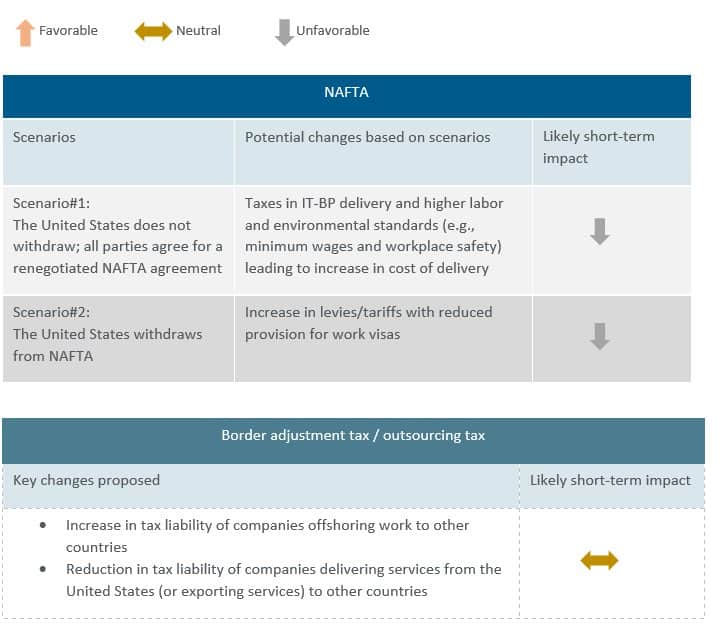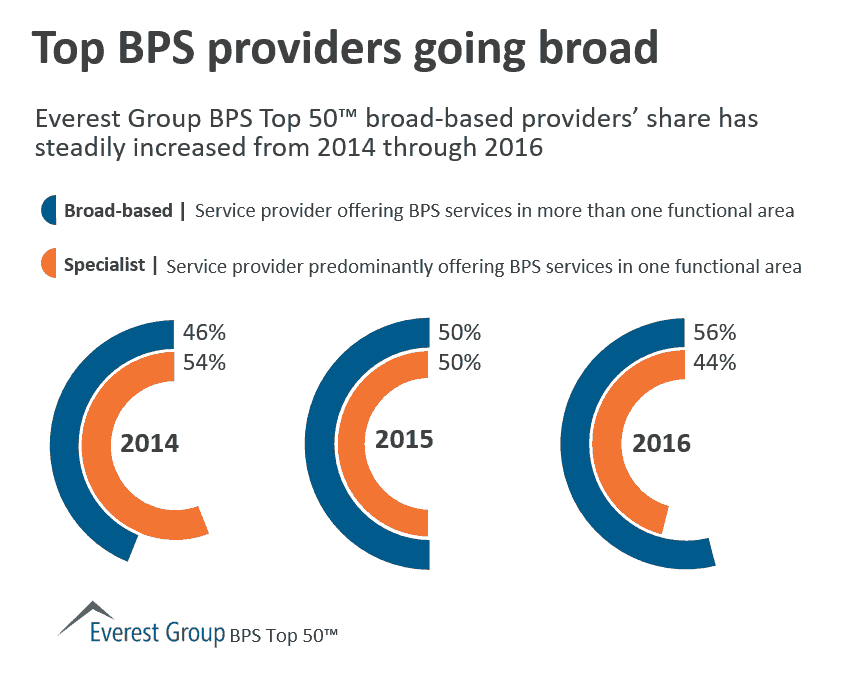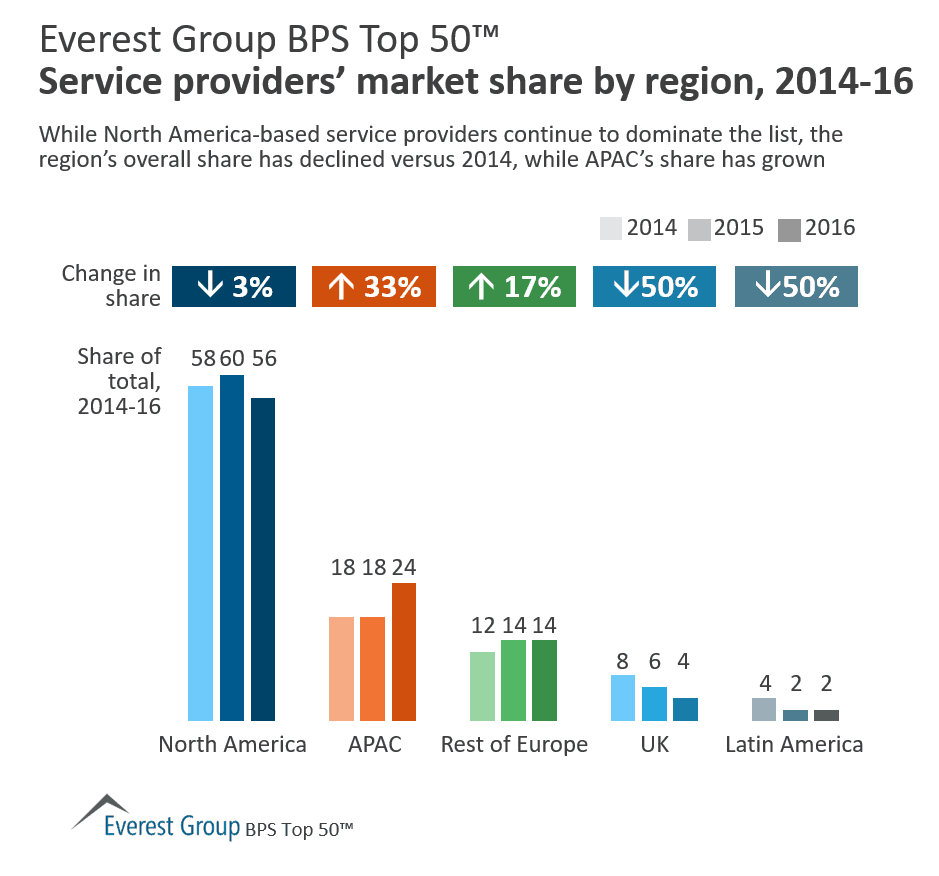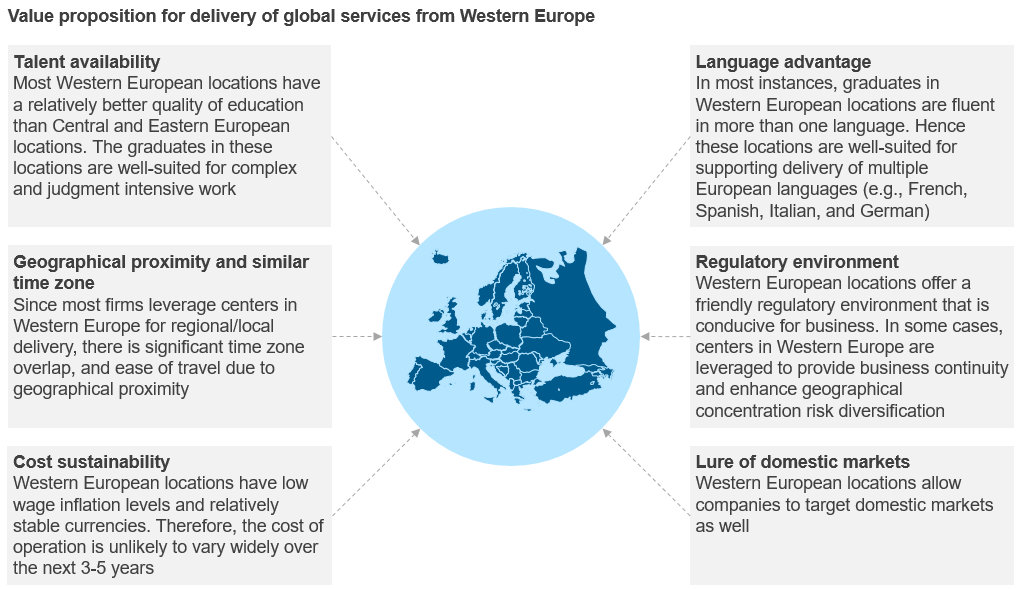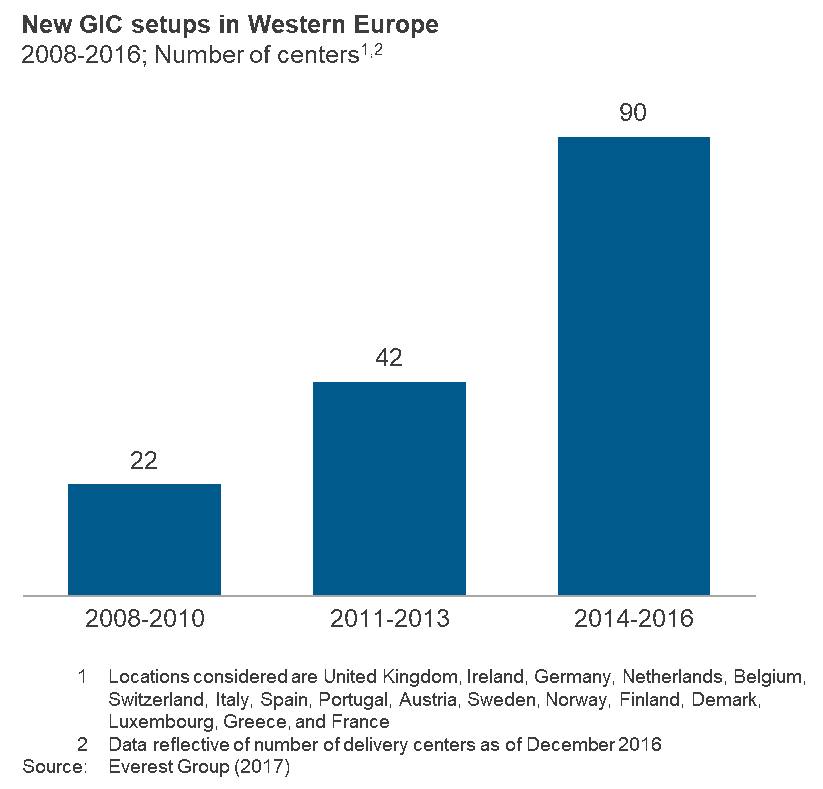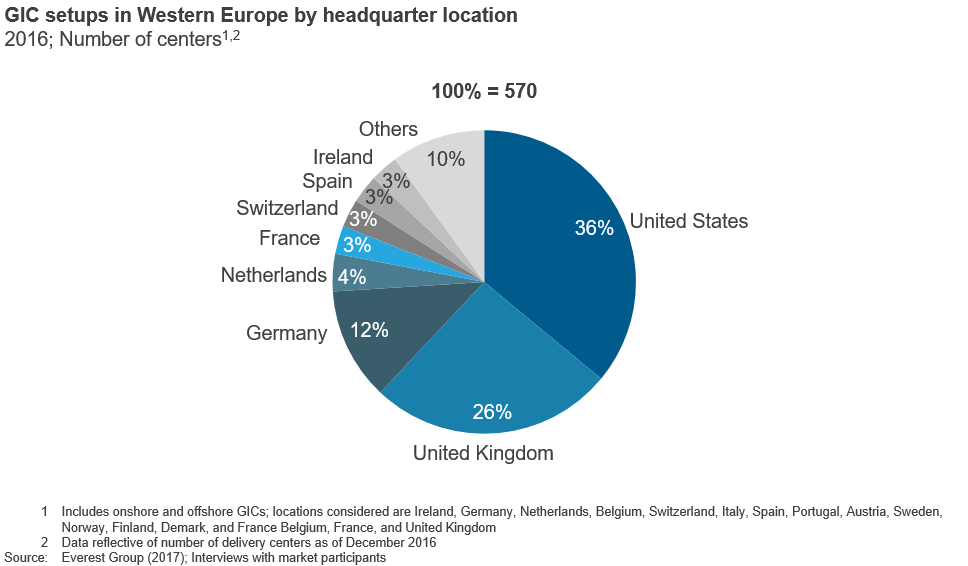In First-of-its-Kind Assessment, Everest Group Identifies Leaders of Service Delivery Automation in Business Process Services | Press Release
Accenture, Cognizant, IBM and Wipro lead the industry in SDA impact, capabilities and vision.
Several big names in the Business Process Services (BPS) market have emerged as leaders in Service Delivery Automation (SDA), according to an assessment just published by Everest Group.
Influential enterprises are disrupting the status quo by demanding from their service providers not only cost reduction but also next-generation benefits focused on business outcomes and enhanced customer experiences. For service providers looking to pivot quickly from an arbitrage-first model to digital-first one, SDA is the one of the key levers, according to new research from Everest Group.
SDA comprises a spectrum of automation solutions for delivering services, such as Robotic Desktop Automation (RDA), Robotic Process Automation (RPA), autonomics, cognitive computing (machine learning, deep learning and neuro-linguistic programming) and advanced Artificial Intelligence (AI). Collectively, SDA is one of the most potent levers that BPS service providers can deploy to help buyers move beyond labor arbitrage to attain valuable benefits.
In a first-of-its-kind report, “Business Process Services Delivery Automation (BPSDA)—Service Provider Landscape with PEAK Matrix™ Assessment 2017,” Everest Group evaluates 18 leading broad-based BPS service providers relative to their SDA market impact and overall vision and capabilities. Employing its proprietary PEAK Matrix framework, Everest Group segments the providers into three categories of performance: Leaders (top quartile), Major Contenders (second and third quartile), and Aspirants (fourth quartile):
- Leaders: Accenture, Cognizant, IBM and Wipro
- Major Contenders: Capgemini, Conduent, EXL, Genpact, HCL, Hexaware, Infosys, NTT DATA, Sutherland Global Services, Syntel and WNS
- Aspirants: HGS, Intelenet Global Services and Mphasis
“Given the importance of SDA as a key value lever in the digital-first BPS world, this report provides an in-depth analysis and comparison of leading BPS providers in terms of their progress and market impact in this space,” said Rajesh Ranjan, partner at Everest Group. “Buyer experience and satisfaction was one of the important dimensions considered in this multi-dimensional assessment. Notwithstanding better performance by Leaders, there is clear opportunity for the BPS industry to improve on buyer satisfaction to realize SDA potential. This is more pronounced in the Artificial Intelligence space.”
Other key findings:
- Accenture and Conduent have the most number of clients with BPSDA deployments by far. They are followed by Capgemini, Cognizant, Genpact, IBM and Wipro.
- Accenture and Conduent lead in most geographies. In APAC, in addition to Accenture, Genpact has found good traction.
- Providers’ success differs across BPS segments. Competitive intensity is high in all other high-potential areas except contact center, which is heavily dominated by Conduent.
- Accenture and Cognizant have the most number of FTEs dedicated to BPSDA. Genpact and Cognizant have the highest share of FTEs in BPSDA product development
***A complimentary 4-page preview of the report is available for download here.*** (Registration required.)
This new report is a part of a three-part series of research findings that Everest Group plans to publish in the BPSDA space. The next report will provide an in-depth view of the state of the industry in terms of key trends, progress and future direction.
